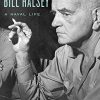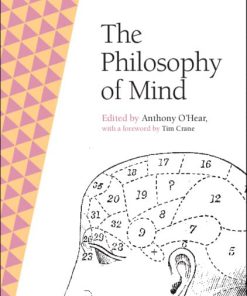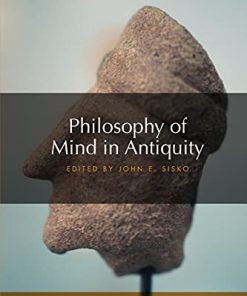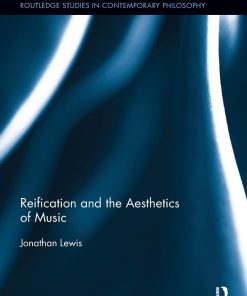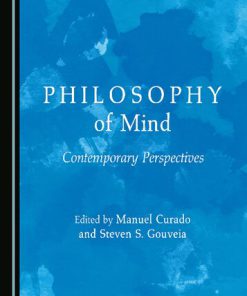Contemporary Debates in Philosophy of Mind 1st editon by Brian McLaughlin, Jonathan Cohen 1119637031 9781119637035
$50.00 Original price was: $50.00.$25.00Current price is: $25.00.
Contemporary Debates in Philosophy of Mind 1st editon by Brian McLaughlin, Jonathan Cohen – Ebook PDF Instant Download/Delivery: 1119637031, 9781119637035
Full download Contemporary Debates in Philosophy of Mind 1st editon after payment
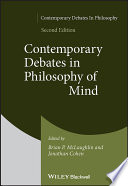
Product details:
ISBN 10: 1119637031
ISBN 13: 9781119637035
Author: Brian P. McLaughlin, Jonathan Cohen
A timely collection of debates concerning the major themes and topics in philosophy of mind, fully updated with new topics covering the latest developments in the field
Contemporary Debates in Philosophy of Mind provides a lively and engaging introduction to the conceptual background, ongoing debates, and contentious issues in the field today. Original essays by more than 30 of the discipline’s most influential thinkers offer opposing perspectives on a series of contested questions regarding mental content, physicalism, the place of consciousness in the physical world, and the nature of perception and mental capacities.
Written to appeal to non-specialists and professional philosophers alike, the second edition of Contemporary Debates in Philosophy of Mind features five entirely new debates on the relation between perception and cognition, whether pain is a natural kind, whether perception is best understood through representational content or direct contact with the world, whether we need imagination that goes beyond imagery and supposition, and whether perceptual contents are general, particular, or a hybrid.
- Presents 15 sets of specially commissioned essays with opposing viewpoints on central topics in philosophy of mind
- Offers head-to-head debates on central topics such as consciousness, intentionality, normativity, mental causation, materialism, and perception
- Provides a dynamic view of contemporary thinking about fundamental and controversial issues
- Includes a thorough introduction providing a comprehensive background to the issues explored in each debate
Part of Wiley-Blackwell’s acclaimed Contemporary Debates in Philosophy series, Contemporary Debates in Philosophy of Mind, Second Edition is essential reading for undergraduate and graduate students, academics, professional philosophers, and sophisticated general readers with an interest in the subject.
Contemporary Debates in Philosophy of Mind 1st Table of contents:
PART I: MENTAL CONTENT
IS THERE A VIABLE NOTION OF NARROW MENTAL CONTENT?
CHAPTER ONE: Cognitive Content and Propositional Attitude Attributions
1. Background
2. Doubting Definitions
3. Paderewski Variations
4. DeRe and De Dicto
5. Attitude Attributions, Neologisms, and Generalizations
Acknowledgments
References
Notes
CHAPTER TWO: There Is No Viable Notion of Narrow Content
1. Narrow and Broad Content
2. Narrow Narrow Content
3. Epistemic Narrow Content16
4. Thoroughly Narrow Content
5. Conclusion
Acknowledgments
References
Notes
IS EXTERNALISM ABOUT MENTAL CONTENT COMPATIBLE WITH PRIVILEGED ACCESS?
CHAPTER THREE: Externalism and Privileged Access Are Consistent
1. Anti‐individualism
2. The McKinsey Problem
3. Types of Response to the McKinsey Problem
4. Anti‐individualism Does Not Imply (2)
5. Reconsideration of McKinsey’s Position
6. Problems for McKinsey
7. Unproblematic Privileged Access to the World?
8. Conclusion
Acknowledgment
References
Notes
CHAPTER FOUR: Externalism and Privileged Access Are Inconsistent
1. The Reductio Argument for Incompatibilism
2. The Proper Response to the Reductio
3. Why Semantic Externalism (SE) Is True
4. The Retreat to MSE Is Unmotivated
5. Individuating Thoughts
6. What’s Wrong with Metaphysical Externalism (ME)
References
Notes
IS THE INTENTIONAL ESSENTIALLY NORMATIVE?
CHAPTER FIVE: Resisting Normativism in Psychology
1. The Background Normativity Claims
2. Norms and Psychology3
3. Wedgwood’s Arguments
4. General Qualms
References
Notes
CHAPTER SIX: Normativism Defended
1. A Version of the Claim That “the Intentional Is Normative”
2. An Argument for the Claim That “the Intentional Is Normative”
3. A Hopelessly Panglossian Picture of the Mind?
4. Psychology, A Priori and Empirical
Acknowledgments
References
Notes
IS THERE NON‐CONCEPTUAL CONTENT?
CHAPTER SEVEN: The Revenge of the Given
1. Introduction
2. Kinds of Representations
3. Some Data at Last
4. Conclusion
Reference
Note
CHAPTER EIGHT: Are There Different Kinds of Content?
1. What Is Conceptual Structure?
2. What Non‐conceptual Content Is: Cognitive Maps
3. What Non‐conceptual Content Is: Visual Perception
4. Syntax and Semantics
Acknowledgments
References
Notes
PART II: PHYSICALISM
IS NON‐REDUCTIVE MATERIALISM VIABLE?
CHAPTER NINE: Everybody Has Got It
References
Notes
CHAPTER TEN: The Evolving Fortunes of Eliminative Materialism
1. An Epistemological Detour
2. The Independent Case for Theoreticity
3. Totting up the Prospects: Sensory Qualia
4. Totting Up the Prospects: The Propositional Attitudes
5. Is There a Residual Case for Propositional Attitudes in Humans?
References
Notes
SHOULD PHYSICALISTS BE A PRIORI PHYSICALISTS?
CHAPTER ELEVEN: A Priori Physicalism
1. Physicalism and the Mind–Brain Identity Theory
2. The Disagreement between A Priori and A Posteriori Physicalism
3. De Re versus De Dicto Versions of the Debate
4. The Epistemological Argument from Zombies for A Priori Physicalism
5. The Semantic Argument for A Priori Physicalism
6. Some (Substantial) Tidying Up
7. The Analogy with Shapes and the Relevance of Functionalism
8. De Re A Posteriori Physicalism and the Problem of Distancing De Re A Posteriori Physicalism from Dual Attribute Theories
Acknowledgments
References
Notes
CHAPTER TWELVE: On the Limits of A Priori Physicalism
1. Common Ground
2. Disputed Territory
Acknowledgments
References
Notes
IS THERE AN UNRESOLVED PROBLEM OF MENTAL CAUSATION?
CHAPTER THIRTEEN: Causation and Mental Causation
1
2
4
5
6
References
Notes
CHAPTER FOURTEEN: Mental Causation, or Something Near Enough
1. What Is “Non‐Reductive Physicalism?”
2. Why NRP Replaced RP
3. The Exclusion Argument Defanged
References
Notes
PART III: THE PLACE OF CONSCIOUSNESS IN NATURE
IS CONSCIOUSNESS ONTOLOGICALLY EMERGENT FROM THE PHYSICAL?
CHAPTER FIFTEEN: Dualist Emergentism
1. Conscious Individuals and Consciousness Properties
2. The Evolution of Consciousness
3. Substance Dualism
4. Qualitatively New Properties
5. Subject Causation
6. Causal Relevance of Consciousness Properties
7. Why Believe in Subject Causation?
8. The Adequacy of Amazement
Acknowledgments
References
Notes
CHAPTER SIXTEEN: Against Ontologically Emergent Consciousness
1. Introduction
2. The Emergentist Idea
3. Some Non‐Starters
4. Anodyne Novelty
5. The Role of Ontological Emergence
6. How to Implement the Role of Emergence
7. More than Merely Nomological Supervenience
8. Analytic Necessitarianism
9. An Ontology of Powers
10. Necessitarianism with Strong Necessity
11. Other Roles for Ontological Emergence
12. Conclusion
Acknowledgments
References
Notes
ARE PHENOMENAL CHARACTERS AND INTENTIONAL CONTENTS OF EXPERIENCES IDENTICAL?
CHAPTER SEVENTEEN: New Troubles for the Qualia Freak
1. Against Phenomenal Dualism
2. Why the Phenomenal Character of an Experience Is Not One of Its Intrinsic Properties
3. Why the Phenomenal Character of an Experience Is Not One of Its Nonrepresentational Properties
4. Phenomenal Externalism
5. Lolita, XP1, and Bodily Sensations
6. An Alternative Proposal and Some Final Thoughts on Qualia
Acknowledgments
References
Notes
CHAPTER EIGHTEEN: A Case for Qualia
1
2
3
4
5
References
Notes
IS AWARENESS OF OUR MENTAL ACTS A KIND OF PERCEPTUAL CONSCIOUSNESS?
CHAPTER NINETEEN: All Consciousness Is Perceptual
1. Perceptual Consciousness
2. Action
3. Thinking
4. Why Peacocke’s View Isn’t PC
5. Conclusion
References
CHAPTER TWENTY: Mental Action andSelf‐Awareness (I)
1. The Distinctive Features of Action‐Awareness
2. The Nature and Range of Mental Actions
3. The Principal Hypothesis and Its Consequences
4. The Principal Hypothesis: Attractions and Possibilities
5. Describing and Explaining Schizophrenic Experience
6. The First Person in Action Self‐Ascriptions
7. Concluding Remarks: Rational Agency and Action‐Awareness
Acknowledgments
References
Notes
PART IV: PERCEPTION AND MENTAL CAPACITIES
SHOULD PERCEPTION BE UNDERSTOOD IN TERMS OF REPRESENTATION, DIRECT CONTACT WITH THE WORLD, OR A HYBRID VIEW?
CHAPTER TWENTY‐ONE: Naïve Realism, the Slightest Philosophy, and the Slightest Science
1. Naïve Realism
2. The Slightest Philosophy
3. Is Naïve Realism Inconsistent with Contemporary Vision Science?
4. Cognitive Penetration
5. Multimodal Perception
6. Dorsal and Ventral Visual Streams
7. Unconscious Perception
8. Conclusion
References
Notes
CHAPTER TWENTY‐TWO: Naïve Realism v. Representationalism
1. Internal Dependence: The Organismic Contribution to Experience
2. Representationalism Accommodates Internal Dependence
3. Basic Naïve Realism v. Representationalism
4. French and Phillips’s Modified Naïve Realism v. Representationalism
5. Conclusion
References
Notes
CHAPTER TWENTY‐THREE: Capacities‐First Philosophy
1. What Is Explanatorily Fundamental in an Analysis of Perception?
2. Why Analyze the Mind in Terms of Mental Capacities?
3. The Hallucination Question and Perceptual Particularity
4. Particularism and Attributionalism
5. The Commitments of Capacities‐First Philosophy
6. Perceptual Capacities
7. Ways of Perceiving, Perceptual Capacities, and Modes of Presentations
References
Notes
IS PERCEPTION GENERAL, PARTICULAR, OR A HYBRID?
CHAPTER TWENTY‐FOUR: Perceiving Particulars
1. Introduction
2. Two Arguments for Existentialism
3. Two Objections to Existentialism
4. Perceptual Awareness of Particulars
5. Visual Objects
Acknowledgment
References
CHAPTER TWENTY‐FIVE: Abstract and Particular Perceptual Content
1. Background
2. Alleged Benefits of Abstract Content
3. Alleged Benefits of Particular Content
4. The Pluralist View: The Best of Both Theories
5. Conclusion
References
Notes
HOW SHOULD WE UNDERSTAND THE DISTINCTION BETWEEN PERCEPTION AND COGNITION?
CHAPTER TWENTY‐SIX: The Perception–Cognition Border
1. Introduction
2. The Dimension Restriction Hypothesis
3. Objections to DRH
4. The Full Iconicity View
5. Challenges to Block’s Format‐Based View
6. Block on Iconic Object Representations
7. Conclusion
References
Notes
CHAPTER TWENTY‐SEVEN: Let’s Get Rid of the Concept of an Object File
1. Perceptual Object Representations Are Iconic
2. Object Files of Working Memory and Thought
References
Note
IS PAIN A NATURAL KIND?
CHAPTER TWENTY‐EIGHT: Scientific Eliminativism for Pain
1. Introduction: Clarifying the Landscape
2. The Promiscuity of Pain
3. Spotlight on Utility
4. What the Problem Is and What It Isn’t
5. Conclusion: Why It Matters
References
Notes
CHAPTER TWENTY‐NINE: Pain Is a Natural Kind
Introduction
1. Why Theorizing about Pain Is Such a Pain (a Quick Recap)
2. Natural Kinds for Psychology
3. Moderate Pluralism about Pain
4. The Eliminativist Alternative
5. Concluding Thoughts
References
Notes
DO WE NEED IMAGINATION OVER AND ABOVE IMAGERY AND SUPPOSITION?
CHAPTER THIRTY: Against Imagination
1. How Not to Explain the Mind
2. Varieties of Skepticism about Imagination
3. Mental Imagery
4. Mental Imagery and Imagination
5. Sensory Imagination / Propositional Imagination / Supposition
6. Mental Imagery in Propositional Attitudes
7. Between Sensory Imagination and Supposition
8. Conclusion: Imagistic versus Linguistic Cognition
References
Notes
CHAPTER THIRTY‐ONE: Why We Need Imagination
1. What Imagination Is
2. The Challenges from Supposition and Conception
3. The Challenge from Belief
4. The Reductionist Challenge
5. Concluding Remarks
References
Notes
Index
End User License Agreement
People also search for Contemporary Debates in Philosophy of Mind 1st:
contemporary debates in philosophy of science
contemporary debates in philosophy of religion
contemporary debates in metaphysics
contemporary debates in epistemology pdf
Tags:
Brian McLaughlin,Jonathan Cohen,Contemporary Debates
You may also like…
History - European History
Uncategorized
Uncategorized
Politics & Philosophy - Major Branches of Philosophical Study
The Philosophy of Mind Talking Philosophy Anthony O’Hear (Editor)
Politics & Philosophy - General & Miscellaneous Philosophy
Uncategorized
History - European History


